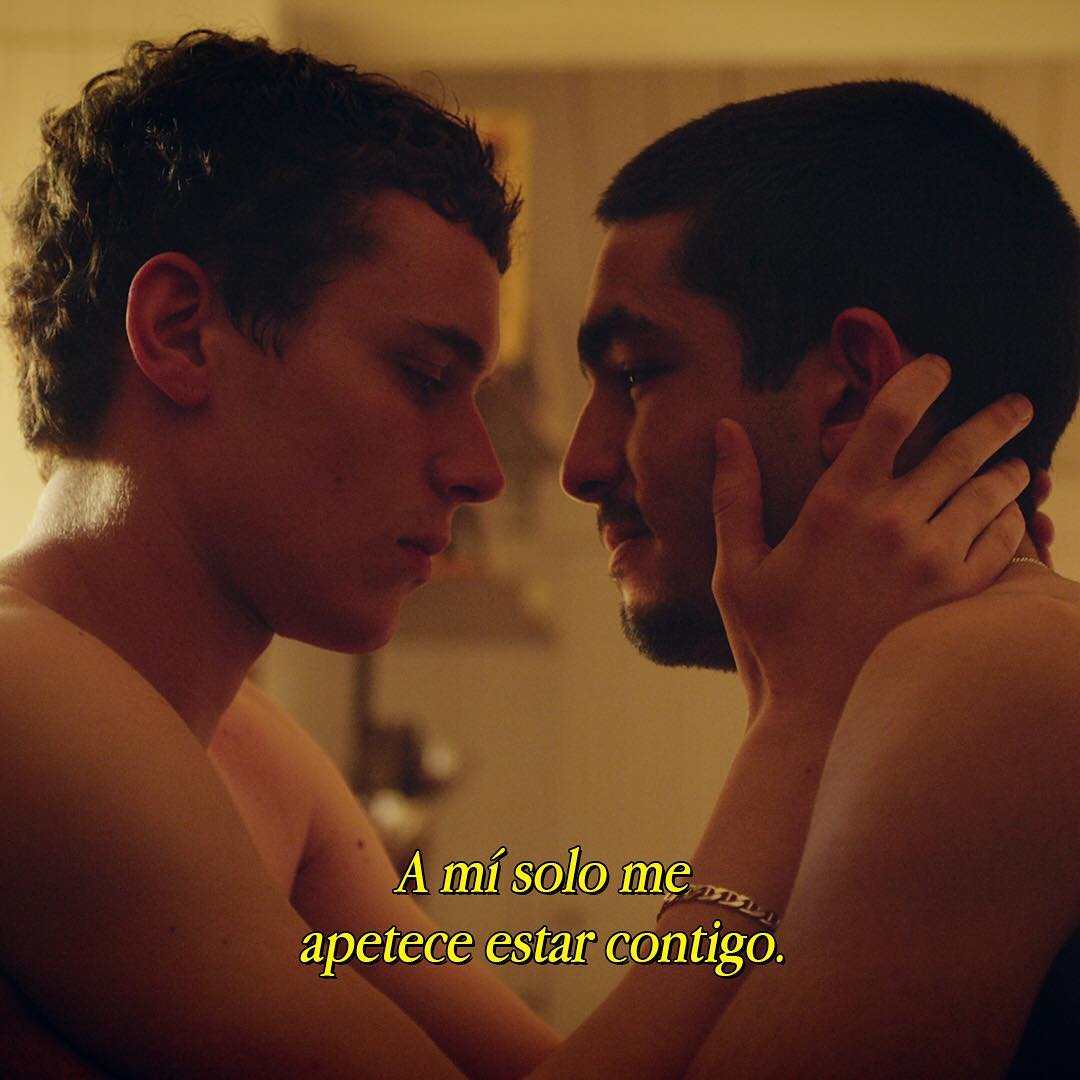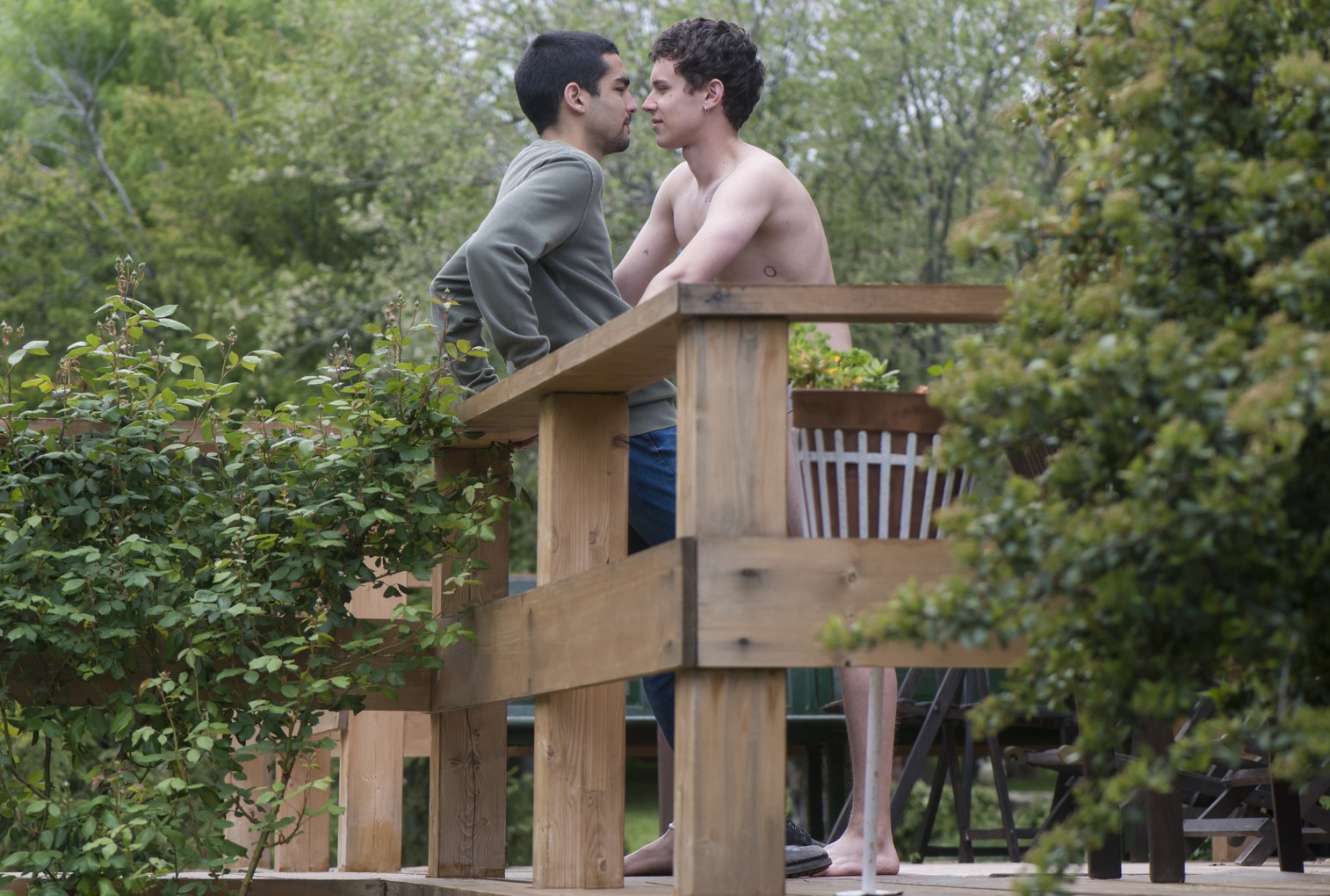Sex! Money! Drugs! Blood! Blackmail! Poor rich kids, always exhausted from carrying a heavy backpack (a Chanel one) on their shoulders, weighed down with envy and spite. Their biggest dilemma in life is to choose whether they give in to their oppressive parents’ decisions, or rebel against them. Does this ring a bell? Sounds like the plot to a host of teen series about the lives of privileged kids, replete with dysfunctional families, emotional traumas, and romantic catastrophes.
A couple of weeks ago, Netflix launched Élite, the streaming platform’s teen show for those born after the year 2000, and who want to obsess over both the lives of the wealthy, and the lives of those who trying to claw their way into high society. Élite, however, has reached people of all ages, even those who aren’t particularly keen on the usual teen fare. The series has reached its second week in a row at the top of Netflix’ audience ratings since its debut on October 5th.
When I was younger, I was obsessed with the lives of Blair Waldorf, Seth Cohen, and Marissa Cooper, but who will the Gen Z kids fondly think about when they start to pay their bills, and face the problems of a planet with increasingly unfathomable temperatures? Probably Marina, Samuel, Nano, Lu, or Guzmán, the teens at the center of Élite — most of all, however, they’ll remember Ander and Omar.
At last, we have a Spanish production not resorting to token gay people. Instead, they’ve made them the most beautiful love story of the whole season. Would it have been this way without Netflix’s guidelines, or if it had been created by a conventional TV channel? Who knows, we’re too busy obsessing over the couple now known as “Omander.”
The story is simple, sort of. Preppy guy buys some weed off of someone decidedly normal. He then agrees to meet a stranger on Grindr, who, surprise surprise, turns out to be the guy who sold him the weed. You’ll have to watch the show to see what happens next, duh. The charm surrounding this relationship stems from their attempts to overcome the hardships they face, including the fact that Omar can’t come out to his family.

Unlike the rest of romantic plots in the show, which carry an undertone of Cruel Intentions, replete with a heaping of infidelity and lies, Ander and Omar’s love story stands out for being totally honest and sweet. Their relationship is bound to be impossible, as long as Omar keeps living with his parents, and it’s this classic Romeo + Juliet scenario that has driven fans crazy.
The fact that both actors are incredibly hot has also helped with their popularity. We’d rather believe, however, that the hype acquired by this story is because of a change in the audience’s mindset, that people are hungry for content they truly can relate to (see a host of diverse Netflix programming for evidence).
Unfortunately, there’s still a bunch of people full of hatred towards the LGTBQI community. Recently, the smart and colorful answer given by Netflix to the homophobic remarks they received on their Instagram account, after posting a picture of the couple has been in the news. “Sorry, I couldn’t read your comment because I’m surrounded by all these beautiful rainbows,” they answered one of their trolls. That’s why, in #20GAYTEEN (the term used online to define 2018 as the year of acceptance), Omander is more necessary than ever.
Omar and Ander’s is not the only relationship in Élite. Carla and Polo, in an attempt to put some spice in their classical heterosexual relationship that started in 6th grade, that is going to “last forever,” embark on a sexual triangle with Christian, one of the kids arriving with a scholarship from Las Encinas, a poorer school.
The couple has to fight against their friends’ prejudices, for instance from Guzmán, who doesn’t understand why Polo allows “that seedy guy to fuck his girl and maybe steal her from him,” or Lu, whose social classism won’t let him see beyond the end of his nose. Sometimes Carla and Polo ignore other people’s opinions and let themselves go with their own instincts, but it’s not easy. When the feelings of them three start to bloom, Polo chooses to make selfish decisions and ends up breaking up a relationship that, to be honest, was unsustainable from the beginning.
In an interview with El Periódico, when asked if they felt any accountability for representing viewers who might be experiencing the same situation as their characters, Omar Ayuso and Arón Piper ― who play Omar and Ander, respectively ― answered: “A lot. It’s a huge social task that we have in our hands.” At the same time, the scriptwriters have failed somewhat to offer a representative space to queer women or to the trans community in the show.
Even though it’s true that Carla takes part in the polyamorous relationship of the show, the true ins and outs of this situation are created between Polo and Christian. Generally speaking, LGBTQI dynamics in Élite end up developing only among cisgender men, and women are reduced to the anecdote that Polo has two power lesbians as mothers. Hopefully this will change in season two.
The students coming from Las Encinas don’t see anything wrong with their classmates’ different sexual identities; problems do not arise from self-acceptance, but from other external factors. In this way, the show tries to send a clear message: over time, society is becoming more openly queer, and it’s older generations who have to adapt to this progress.
Élite draws upon many TV hits, but is by no means the Spanish Gossip Girl. It’s much more consistent with the current social context than the production created by The CW Network was. If we ignore the blazers, the show is much more of a reflection of the issues we experience in our everyday lives, such as prejudices, intolerance towards the hijab, stigma towards HIV, and the ubiquitous political corruption that has become a part of the “Spanish Brand.”
Since its release, Élite has developed a devoted fandom and received positive reviews internationally. In other words, it’s off to good start, and can only get better, developing its narrative and diverse representation further. As Lu likes to say, “Have a lovely day, my dear friends, whatever your sexual orientation might be.”
This article originally appeared on i-D Spain.
